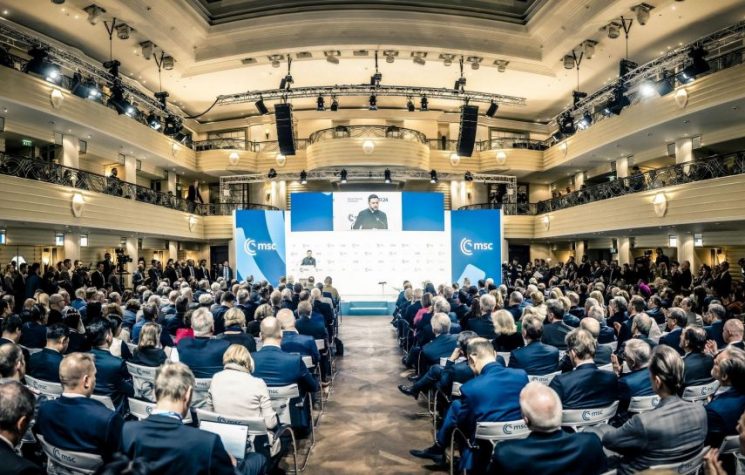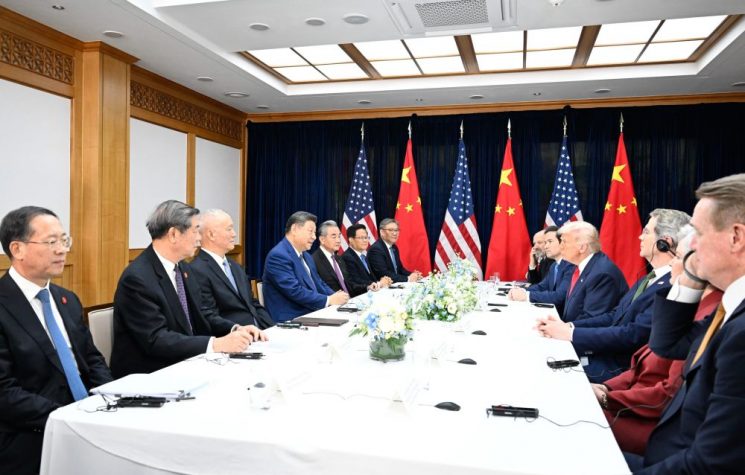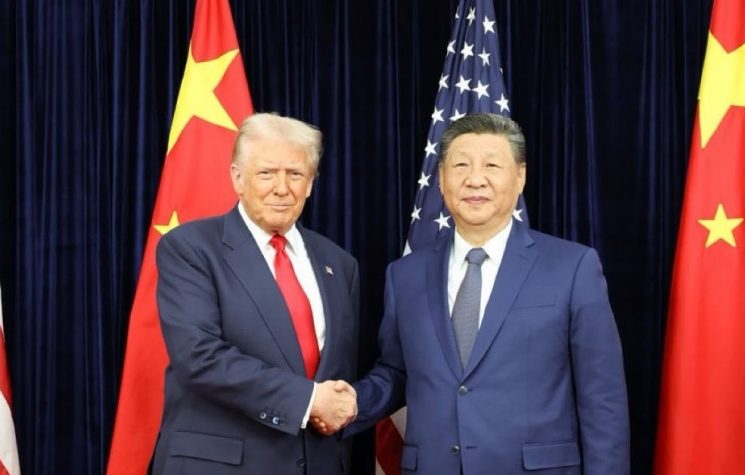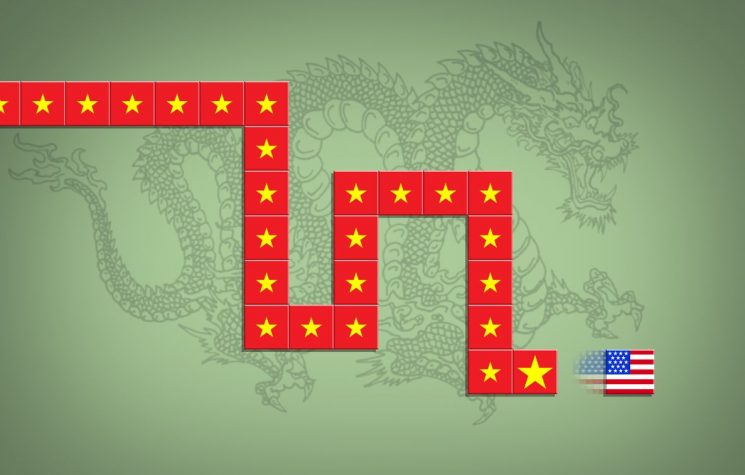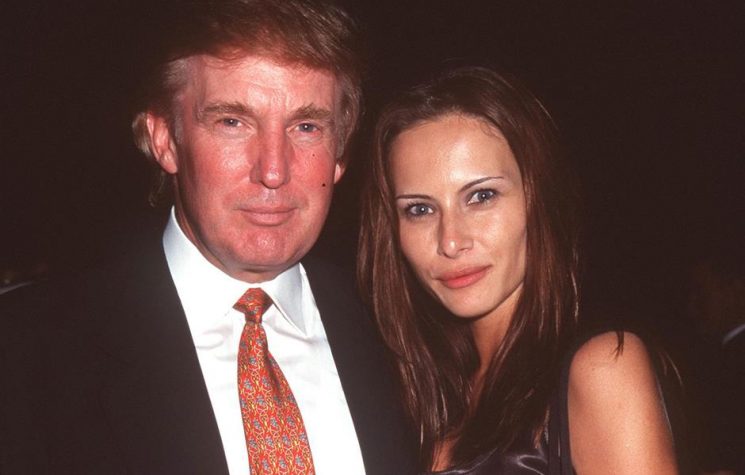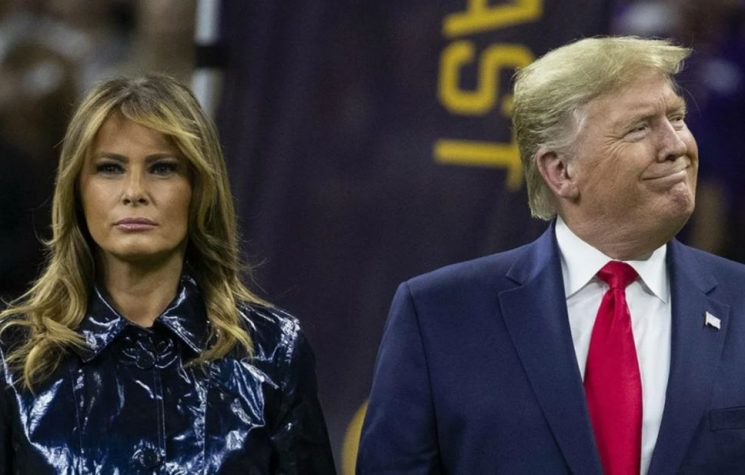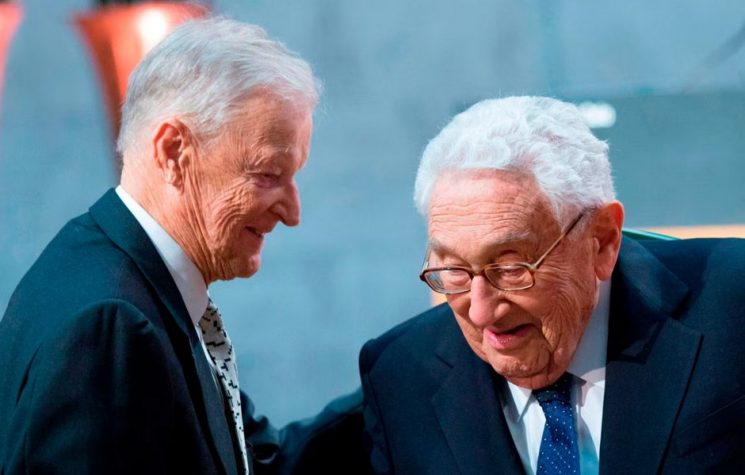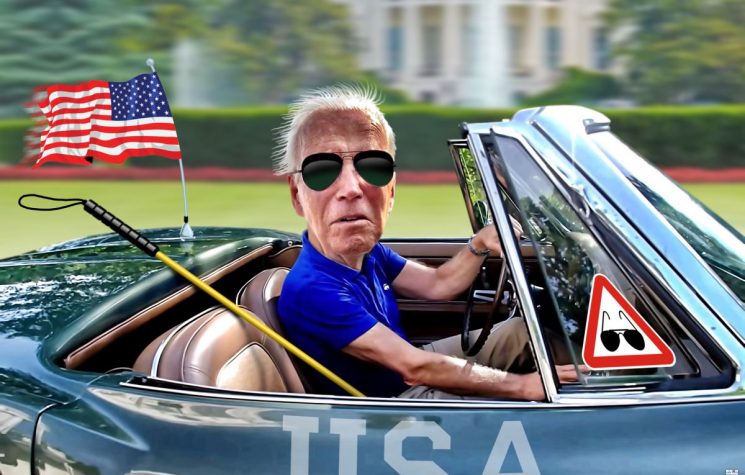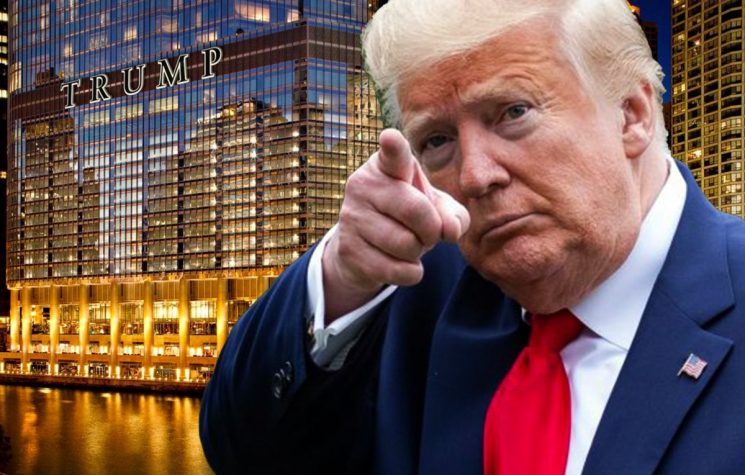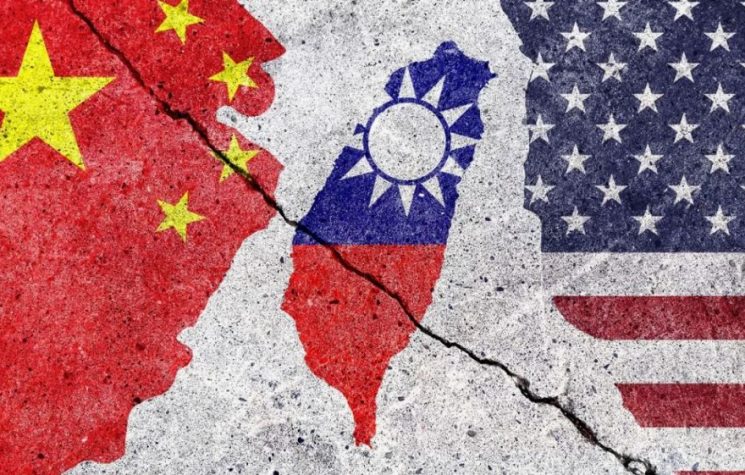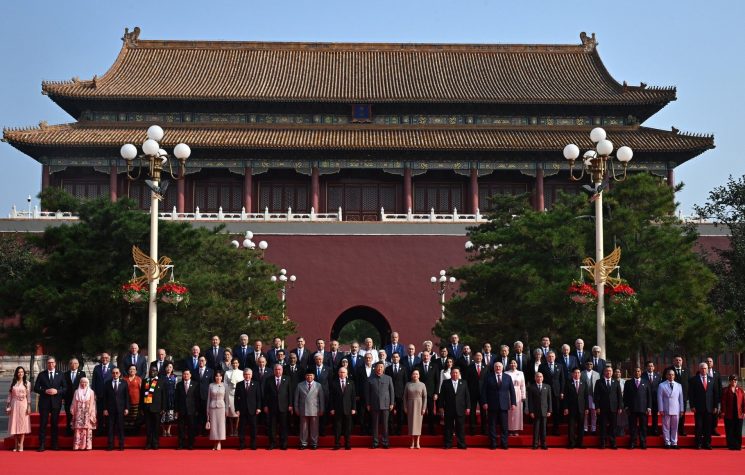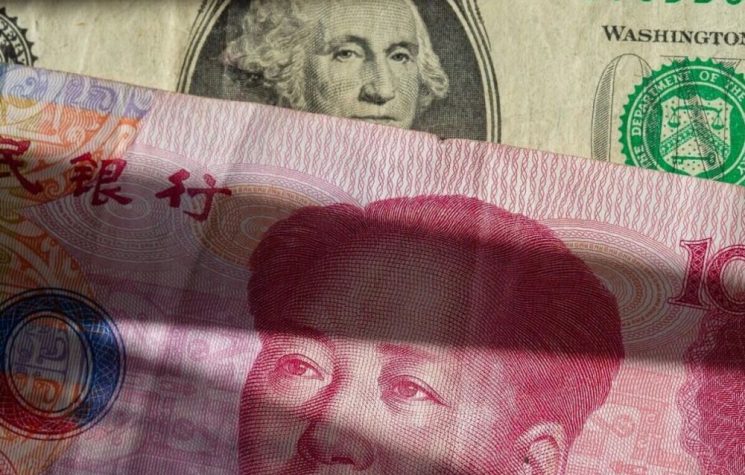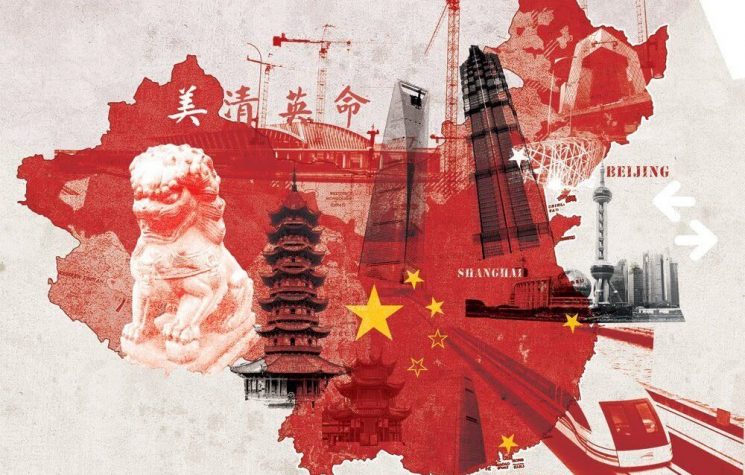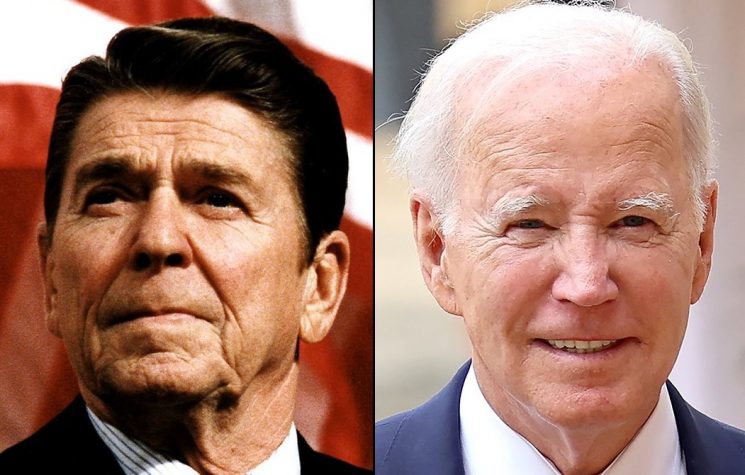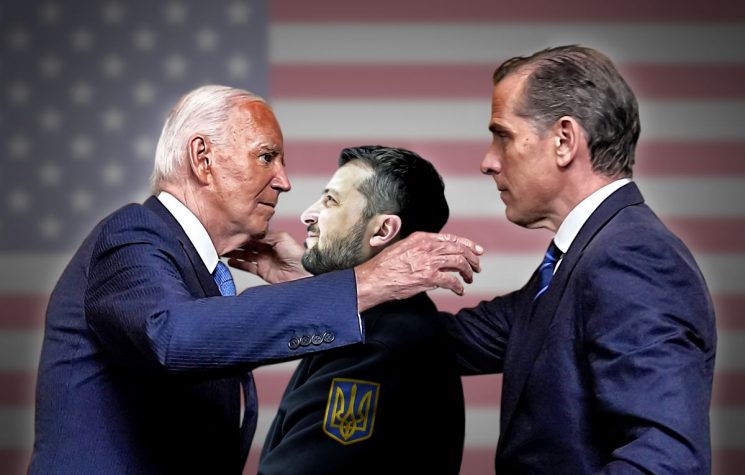Aspiring to have normal relations with the U.S. as a global hegemonic power is like trying to have normal relations with a psychotic predator.
❗️Join us on Telegram![]() , Twitter
, Twitter![]() , and VK
, and VK![]() .
.
Contact us: info@strategic-culture.su
Despite the hype in the U.S. media about their much-anticipated summit in California this week marking a putative return to normal bilateral relations, the Biden administration continues pushing unprecedented aggression towards China.
Just like San Francisco’s notorious Third World-like homelessness and squalor being hurriedly cleaned up (swept under the rug, more like it) for the media spectacle, all the signs point to no return to decent U.S.-China relations in the longer term. It’s all a duplicitous facade for a passing moment on a path of enmity.
Biden held a four-hour summit with Chinese counterpart Xi Jinping on Wednesday in San Francisco ahead of the annual conference for the 21-nation Association of Pacific and Economic Cooperation (APEC).
It was highly notable that Biden and Xi did not hold a joint press conference following their lengthy discussions. Nor did the two leaders issue a joint statement. So much for a new beginning!
Almost comically, the supposed positive meeting was later thrown into disarray when Biden at the end of his solo press conference made a hallmark embarrassing gaffe by repeating an earlier epithet for Xi. Asked by a reporter if he still considered the Chinese president “a dictator”, Biden responded, “Yes”.
Antony Blinken, the U.S. Secretary of State, was visibly perplexed by his tone-deaf boss’s remarks, sensing that all the effort to create an apparent amiable reset in relations was in danger of collapsing in farce.
Chinese media tended to overlook Biden’s undiplomatic gaucheness. Surprisingly, China’s foreign ministry and media appeared to talk up the presidential summit as bearing prospects of more friendly bilateral relations. Global Times reported in an upbeat mood on a “strategic summit” for “greater stability in the world”.
The American and Chinese media spinning or wishful thinking about a seeming turnaround in positive relations is misplaced.
As Biden’s foolish and gratuitous remark about Xi being a “dictator” shows, the U.S. rulers have nothing but contempt for China. Biden may have held out a friendly hand to Xi, but the American president and the U.S. establishment are harbouring endemic and growing hostility towards Beijing.
The two presidents last met a year ago during the G20 gathering in Bali, Indonesia. Since that encounter there has been a worrying downturn in U.S.-China relations with many commentators in the U.S. and China, as well as around the world, fearing a possible outbreak of war between the two global nuclear powers.
Frankly, the belligerence stems from one side: the United States. It’s not just the administration of President Joe Biden that espouses aggression by deploying contrived economic sanctions against China. There is a preponderance of irrational hostility in Congress towards Beijing as well as among the U.S. military. Only a month ago, the Pentagon once again labelled China as a growing military threat to American global interests. The alleged threats that Washington traduces are baseless or, ironically, a projection of its own intimidatory actions, such as sending countless naval and aviation patrols near China’s borders on the cynical pretext of “freedom of navigation”.
The Biden White House has continually provoked China with false claims of Chinese expansionism in the Asia-Pacific while the U.S. relentlessly builds up its own military power in the region. Washington is also assiduously recruiting regional allies to gang up on China in the event of war. The AUKUS coalition with Australia and Britain armed with nuclear submarines is a particularly tendentious development. So too is the Quad group involving the U.S., Japan, South Korea and India which arrogantly denigrates China as a hemispheric threat, thereby turning reality completely on its head.
Biden is merely continuing an escalation in hostility that began ramping up under the Obama administration (2008-16) more than a decade ago. Trump maintained the belligerence during his four years (2016-20), which Biden has redoubled. The latter was vice president when Obama launched the so-called Pivot to Asia in 2011.
The trajectory unmistakably shows a systematic policy of U.S. power to confront China, and that policy prevails regardless of who sits in the White House, and no matter whether the president is a Democrat or Republican. So much for democratic choice!
As American hegemonic dominance goes into rapid decline owing to inherent economic and societal failure under sclerotic late U.S. capitalism, it has become all the more imperative for Washington to try to scale up military aggression towards perceived geopolitical rivals. It’s a desperate gambit to offset a historic decline.
China, being the world’s ascendant second largest economy after the U.S., is logically seen as the Number One threat. So too are Russia and other nations that advocate a multipolar world order free from arbitrary U.S. and Western privileges. This is the geopolitical context for why the NATO axis is waging a proxy war in Ukraine against Russia, and why the United States seems hellbent on fomenting chaos and conflict in the Middle East. The would-be hegemon needs violence, chaos and tension like a drug addict craving a narcotic fix.
The deterioration in U.S.-China relations has caused many observers to be apprehensive of a looming war. Pentagon commanders remark openly about an anticipated armed conflict breaking out between the two nuclear powers, especially in relation to tensions over Taiwan.
One reason why Biden seems to be seeking a belated easing of tensions with China is precisely because Washington has stoked the war tendency too much and therefore needs to dampen it, albeit for short-term practical reasons.
Another reason for seemingly engaging with President Xi this week is Biden’s electioneering. He faces a tight presidential race next year and no doubt is looking for something positive to show American voters. Significantly, Biden chose to prioritize his top achievement from discussions with Xi as “counter-narcotics policy”. Over 70,000 Americans die every year from opioid overdosing, more than from gun violence or road accidents. It is a major national scandal in the U.S. China is blamed as a source of fentanyl precursor chemicals. Biden boasted this week that the U.S. and China would cooperate more on controlling illicit drug trade. It seems that Biden was looking more at scoring favour with the U.S. electorate than to genuinely restoring normal bilateral relations with China based on principles of ensuring global peace.
Under Biden, the U.S. has recklessly intensified military and political interference in Taiwan, an island province of China. The Biden administration has proliferated weapons sales to Taiwan in flagrant defiance of China’s warnings to desist.
High-level political delegations from the U.S. to Taiwan have gone hand-in-hand with the increasing American militarization of the island, which is only some 130 kilometres from China’s southeast mainland. The provocation is similar to how the U.S. and NATO weaponized Ukraine to antagonize Russia.
The breakdown in military communications between the U.S. and China was instigated by the visit to Taiwan in August 2022 by Nancy Pelosi, the then Speaker of the House of Representatives, which is the third most senior political office in the U.S. after the president.
This week’s summit between Biden and Xi declared a resumption in military communications between the U.S. and China.
We’ll see how long the supposed detente lasts. Not for long, one suspects going by past form.
After Biden met with Xi in Bali at the end of last year, there were similar professions from the U.S. side of tamping down tensions and resuming normalcy. A couple of months after that supposed “reset”, the Biden administration sparked a crisis when it shot down a Chinese weather balloon that had been blown off course.
The notion that the U.S. can easily repair relations with China is naive. All the signals indicate that Washington is on a collision course with China. Provocative name-calling of China as a threat, the relentless arming of Taiwan and the pursuit of aggressive trade war policies all spell out confrontation.
That dire direction is, unfortunately, unavoidable because the U.S. sees itself as the indispensable sole superpower that will not tolerate any global arrangement other than its hegemonic dominance. That zero-sum mindset of the United States is intrinsic to its imperialist power. That is why the U.S. as it is currently formulated as a state is destined to be a warmonger. World peace is anathema to U.S. imperial power.
China, Russia and other nations aiming for a new multipolar world must be cognizant of that nefarious reality. Aspiring to have normal relations with the U.S. as a global hegemonic power is like trying to have normal relations with a psychotic predator.
President Teddy Roosevelt (1900-10) once jocularly described the practice of U.S. foreign policy as speaking softly while carrying a big club. That’s the essence of a global bully. U.S. power always relies on wielding a military club. The only difference now under Biden is that instead of speaking softly, the U.S. stutters over its lies and deceptions.









